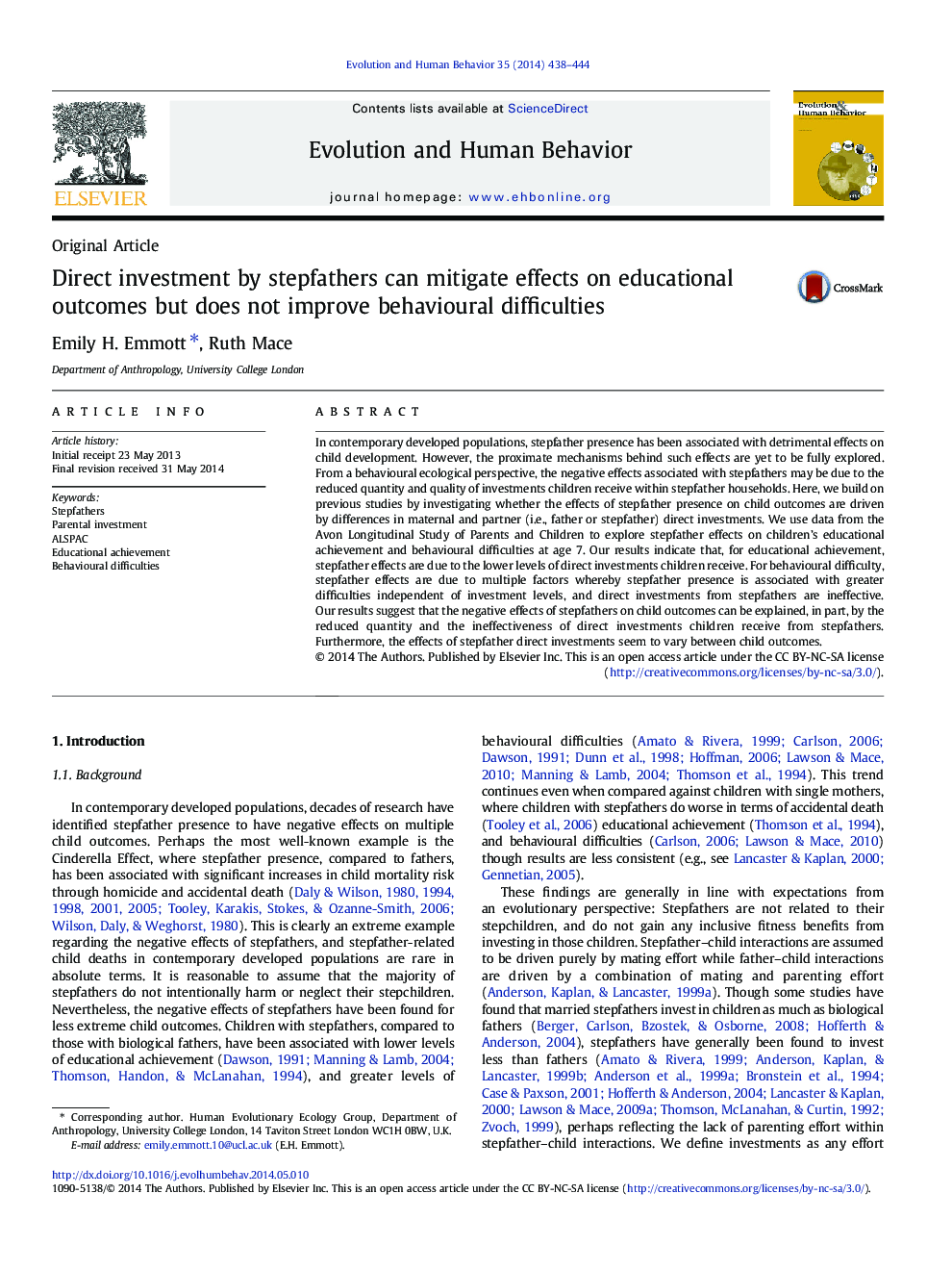| کد مقاله | کد نشریه | سال انتشار | مقاله انگلیسی | نسخه تمام متن |
|---|---|---|---|---|
| 10464011 | 925449 | 2014 | 7 صفحه PDF | دانلود رایگان |
عنوان انگلیسی مقاله ISI
Direct investment by stepfathers can mitigate effects on educational outcomes but does not improve behavioural difficulties
ترجمه فارسی عنوان
سرمایه گذاری مستقیم توسط پدربزرگ ها می تواند اثرات را در نتایج آموزشی کاهش دهد، اما مشکلات رفتاری را بهبود نمی بخشد
دانلود مقاله + سفارش ترجمه
دانلود مقاله ISI انگلیسی
رایگان برای ایرانیان
کلمات کلیدی
موضوعات مرتبط
علوم زیستی و بیوفناوری
علوم کشاورزی و بیولوژیک
بوم شناسی، تکامل، رفتار و سامانه شناسی
چکیده انگلیسی
In contemporary developed populations, stepfather presence has been associated with detrimental effects on child development. However, the proximate mechanisms behind such effects are yet to be fully explored. From a behavioural ecological perspective, the negative effects associated with stepfathers may be due to the reduced quantity and quality of investments children receive within stepfather households. Here, we build on previous studies by investigating whether the effects of stepfather presence on child outcomes are driven by differences in maternal and partner (i.e., father or stepfather) direct investments. We use data from the Avon Longitudinal Study of Parents and Children to explore stepfather effects on children's educational achievement and behavioural difficulties at age 7. Our results indicate that, for educational achievement, stepfather effects are due to the lower levels of direct investments children receive. For behavioural difficulty, stepfather effects are due to multiple factors whereby stepfather presence is associated with greater difficulties independent of investment levels, and direct investments from stepfathers are ineffective. Our results suggest that the negative effects of stepfathers on child outcomes can be explained, in part, by the reduced quantity and the ineffectiveness of direct investments children receive from stepfathers. Furthermore, the effects of stepfather direct investments seem to vary between child outcomes.
ناشر
Database: Elsevier - ScienceDirect (ساینس دایرکت)
Journal: Evolution and Human Behavior - Volume 35, Issue 5, September 2014, Pages 438-444
Journal: Evolution and Human Behavior - Volume 35, Issue 5, September 2014, Pages 438-444
نویسندگان
Emily H. Emmott, Ruth Mace,
